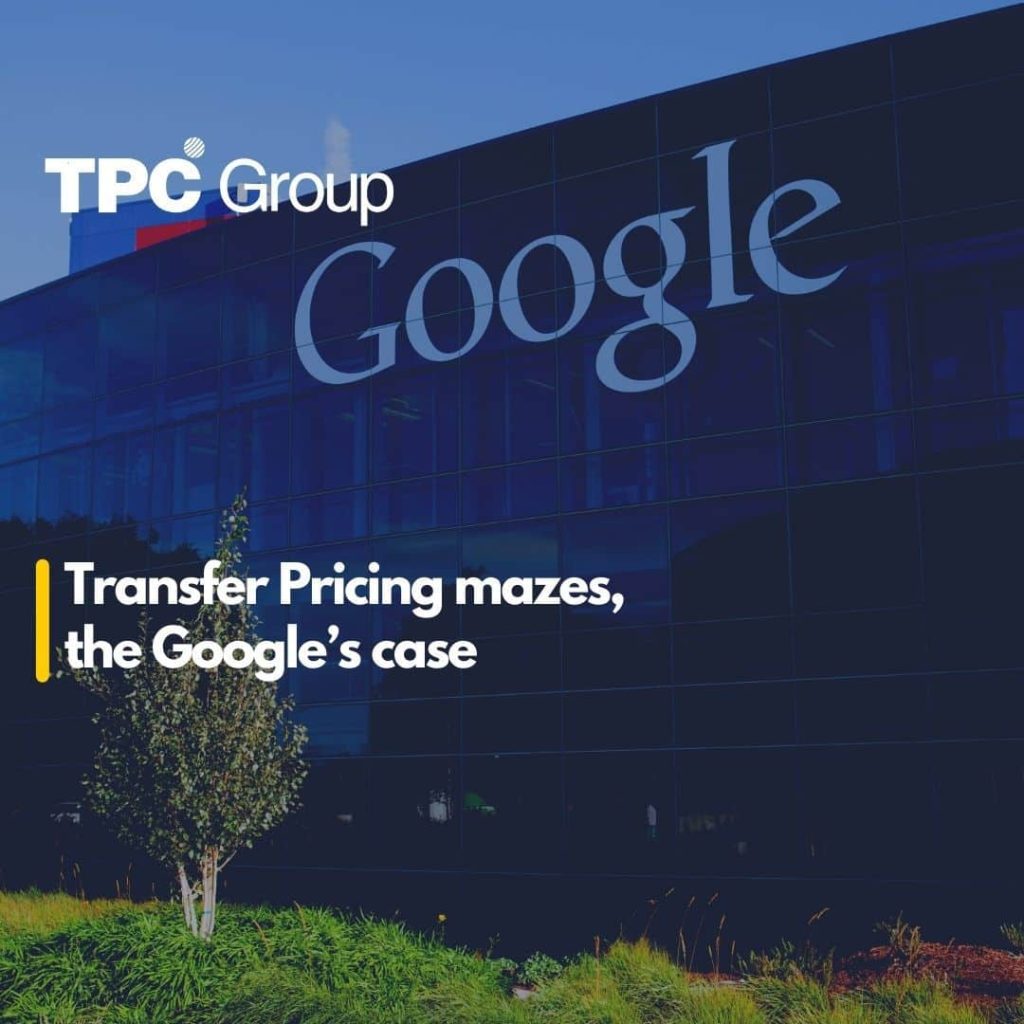By: Carlos Vargas Alencastre CEO TPC Group
Google Inc. is a very curious case in matters of transfer pricing. This global giant reduced its taxes by $3.1 billion from 2007 to 2010 by using a technique that consisted of shifting most of its profits abroad through Ireland and the Netherlands to Bermuda.
Google’s strategy helped reduce its tax rate abroad to 2.4%, the lowest of the top five U.S. technology companies by stock market capitalization.
The Dublin subsidiary, which employs nearly 2,000 people and sells advertising throughout Europe, the Middle East, and Africa, has much more than tripled its workforce since 2006 and is credited with nearly 90% of Google’s sales abroad, amounting to US$12.5 billion in 2008.
In the U.S. the corporate income tax rate is 35%. In the U.K., Google’s second-largest market in revenues, being 28%. Google, the owner of the world’s most popular search engine, uses a strategy that has gained acceptance among companies such as Facebook Inc. and Microsoft Corp. The strategy uses several advantages, including low Irish income tax (10% then, today 12.5%) and the reduced withholding advantages of the European Community. Profits end up in a tax haven without any corporate income tax. The Bermuda offices are domiciled at the offices of the law firm of Conyers, Dill & Pearman at Clarendon House located on Church Street in Hamilton, Bermuda.
Google, the third-largest U.S. technology company by stock market capitalization, has not been accused of violating tax laws. “Google’s practices are very similar to those of countless other global companies operating in a wide range of industries.”
Ireland was one of the first states to ask for a bailout during the Great Recession to record a spectacular growth rate of more than 25% a few years later. Analysts agreed then that the figure was inflated, and a large part of the distortion was due to the huge influx of foreign investment attracted by the generous tax advantages the country offered to multinationals.
The island had already embraced lax tax policies decades before it becomes a favorite destination for large corporations. In the 1980s, it promoted the creation of a special economic zone in Dublin, followed by the implementation of schemes to lower the tax bill of multinational companies and the reduction of the statutory corporate tax rate to 12.5%, which is still one of the lowest in the region, being the average of 22%. These measures led to an unprecedented economic boom, making the country earn the nickname of the Celtic tiger in the 1990s, analogous to the expansion experienced at the end of the 20th century by the so-called Asian tigers, such as South Korea and Singapore.
The starting point of this strategy was the transfer of rights and intellectual property rights to a company in Ireland for a reasonable price. Google transferred its search and advertising technology for Europe, Middle East, and Africa from Google Holdings, Ireland. The deal was approved by the IRS under an Advanced Pricing Agreement (APA), overcoming the initial transfer pricing barrier by seeking IRS approval.
The technique required two companies in Ireland: Google Holdings- Ireland, managed administratively in Bermuda (fiscally residing there) owns the licenses of Google’s intellectual property rights. Google Ireland Limited sells worldwide advertising and collects advertising revenue, withholds a small percentage of the advertising revenue, and then pays the balance in royalties to Google Holdings in the Netherlands. The copyright is tax-sheltered since Bermuda does not levy a corporate tax.
In the Netherlands, Google uses a strategy known as a “conduit company”. This tactic is used before royalties are paid to Google Holdings. Irish companies are not required to withhold tax on royalties paid to companies in other European Community countries. To avoid the 20% withholding tax, Google Ireland Limited pays royalties to a Dutch subsidiary, paying virtually at the same time all royalties to Google Holdings, Ireland.
This case never went to Court because several elements determined that it could not be considered Tax Avoidance: the agreement with the IRS to assign the license was the starting point. The change of location to Bermuda, the tax advantages of the Netherlands, and, finally, the tax deferral is the most used technique for American taxpayers.
Google pays 35% income tax on its U.S. source income, but only 2.4% on its foreign scheme. If the Bermuda subsidiary distributes dividends, these would be taxed at 35% in the U.S.
The profits of the Bermuda subsidiary are included in the consolidated financial statements due to its listing on the New York Stock Exchange. These profits are then reflected in the share price without the need for effective distribution, thus avoiding U.S. tax on foreign dividends.



